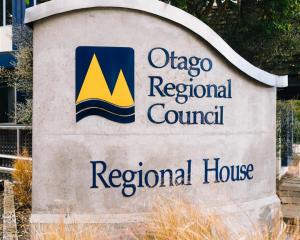The Alcohol Reform Bill, which is in its final stages before Parliament, was the main topic of discussion. Local authorities, police, Public Health South, Hospitality New Zealand and ACC staff from Waitaki south were represented at the meeting.
The Bill is designed to tighten liquor sales and consumption, reduce excessive drinking and the harm caused by alcohol use.
Alcohol Advisory Council of New Zealand (Alac) local government manager Cathy Bruce, of Christchurch, told the meeting about the changes proposed to the law and said it widened the opportunity for the community to have a say.
Under the new system, new licences or licence renewals would be decided by independent district licensing committees.
"More decisions will be made at district and district committee level and less at Liquor Licensing Authority level. I think one of the aims is to inspire communities to have a greater say in liquor licensing, that's my gut feeling, " she said.
Inspector Olaf Jensen, of Invercargill, agreed the reforms would give the community more input.
Ms Bruce said there might be changes to liquor bans, under the new law. Liquor bans are implemented in some form by many local authorities.
Under the reforms, councils would have to prove a liquor ban was needed in an area because the area had "experienced a high level of crime or disorder that can be shown to be caused or made worse by alcohol consumption".
"This is going to be an incredibly big year of change," Ms Bruce said.
Some local authorities had already developed local alcohol policies to be introduced after the Bill is passed later this year.
Local authorities can have a policy relating to the sale, supply or consumption of alcohol within their district. District licensing committees would have to take those local alcohol policies into consideration before reaching decisions on liquor licensing.
"We'd advise you to be talking to your neighbouring local authorities about what they're doing as far as a local alcohol policy is concerned and maybe join forces on this," Ms Bruce said.
"It would be good to have some consistency, across the borders."
As with rural drink-driving issues, it made sense to "talk across the boundary" about the matter, she said.
In drafting the policy, the local authority had to gather data, which included the demography of the district's residents, of people who visited the area as tourists or holidaymakers, the overall health indicators of the district's residents and the nature and severity of alcohol-related problems arising in the district. Other agencies, such as police and Public Health South, would also be involved.
Other proposed changes to the alcohol laws include stopping alcohol sales from dairies and convenience stores. A split-purchase age of 18 for on-licence premises such as bars and restaurants, and 20 for off-licences such as supermarkets and liquor stores is also proposed.
Former Liquor Licensing Authority judge Bill Unwin told a meeting in Queenstown this week the Bill was "much stronger" than current legislation and could make life "quite uncertain" for licensees.











